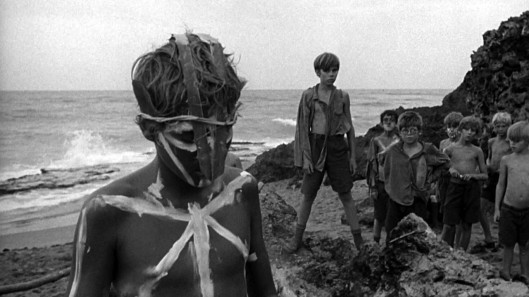Via Tyler who has just been promoted to art director for Amazon Publishing
The Fascinating Story Behind America’s Most Expensive Home Vanity Fair . The press can’t get enough of this house.
.JPG?width=922&height=&mode=crop&scale=both&anchor=topcenter&quality=70)

Lendak a mix of old and new
Wired
Every good
paranoiac sees an always-listening device like an Amazon Echo as a potential
spy sitting in plain sight. Now one security researcher has shown exactly how
fine the line is between countertop computer and surveillance tool. With just a
few minutes of hands-on time, a hacker could turn an Echo into a personal
eavesdropping microphone without leaving any physical trace. On Tuesday, , British security researcher Mark Barnes detailed a technique anyone can use to
install malware on an Amazon Echo, along with his proof-of-concept code that
would silently stream audio from the hacked device to his own faraway server.
The technique requires gaining physical access to the target Echo, and it works
only on devices sold before 2017. But there's no software fix for older units, Barnes warns, and the attack can be performed without leaving any sign of
hardware intrusion.


The John Updike Society — In Memoriam: former Knopf editor Judith Jones
“. . . --remember that every life is a special problem which is not yours but another’s, and content yourself with the terrible algebra of your own. Don't melt too much into the universe, but be as solid and dense and fixed as you can. We all live together, and those of us who love and know, live so most.”
All of us are called upon to write notes of condolence. Living means knowing death at a remove until we know it first-hand. Some think of this as practice, Montaignean equanimity by way of etiquette. Henry James is writing a letter on this date, July 28, in 1883, to Grace Norton (1834-1926), Montaigne scholar and the youngest sister of Harvard’s Charles Eliot Norton. Gently, philosophically, James consoles his friend:


“I don’t know why we live—the gift of life comes to us from I don't know what source or for what purpose; but I believe we can go on living for the reason that (always of course up to a certain point) life is the most valuable thing we know anything about and it is therefore presumptively a great mistake to surrender it while there is any yet left in the cup.”
This reads like a precognitive echo of Lambert Strether’s injunction to “little Bilham” in The Ambassadors (1903): “`Live all you can; it's a mistake not to. It doesn't so much matter what you do in particular so long as you have your life. If you haven't had that what have you had?” James had practice with death. His mother had died in January 1882, his father that December. In 1881, he had written the most memorable (though off-stage) and momentous death in all of his fiction. The consumptive Ralph Touchett in The Portrait of a Lady is a perfect Jamesian onlooker, a semi-invalid who arranges with his father to leave Isabel Archer a generous inheritance as an experiment. He wishes to see what his American cousin, so dedicated to unencumbered freedom, will do with her fortune. This act led Graham Greene to call him the “the sainted Ralph,” though Touchett’s seemingly benign plotting results in Isabel’s disastrous marriage to the monster Gilbert Osmond.
Was James, in turn, prepared for death? It came in 1916, just months after he became a British citizen. Some readers and critics have suggested the Great War killed James. He called it an “abyss of blood and darkness.” Edith Wharton saw stoical dignity in her friend’s dying and death. She writes inChap. 14 of A Backward Glance (1934):
“His dying was slow and harrowing. The final stroke had been preceded by one or two premonitory ones, each causing a diminution just marked enough for the still conscious intelligence to register it, and the sense of disintegration must have been tragically intensified to a man like James, who had so often and deeply pondered on it, so intently watched for its first symptoms. He is said to have told his old friend Lady Prothero, when she saw him after the first stroke, that in the very act of falling (he was dressing at the time) he heard in the room a voice which was distinctly, it seemed, not his own, saying: `So here it is at last, the distinguished thing!’ The phrase is too beautifully characteristic not to be recorded. He saw the distinguished thing coming, faced it, and received it with words worthy of all his dealings with life.”
